The Great Resignation: Why Aussies are leaving their six-figure jobs
With millions predicted to flee their workplaces as part of The Great Resignation, Aussies are ditching six-figure salaries for new adventures.
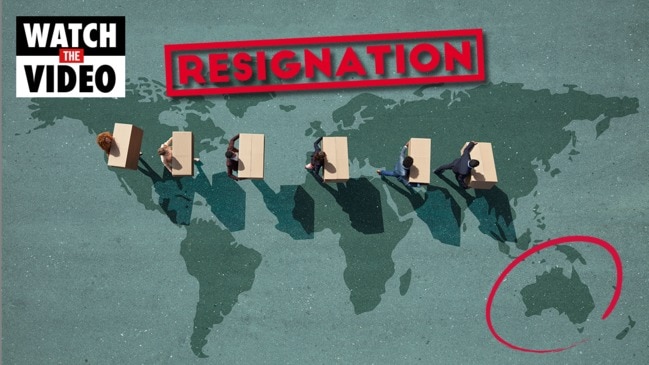
Work
Don't miss out on the headlines from Work. Followed categories will be added to My News.
When Dean Nye was waking up anxious about the work day ahead during Sydney’s second lockdown he knew something had to change, so he quit his job with nothing lined up.
But he did have a dream – he had always loved baking and found his anxiety went away when he was kneading dough and making sweet treats.
So at 37, he made the “daunting” decision to completely switch his career, leaving behind a decade of experience working in the media to become a baker.
It meant taking a serious pay cut, giving up the six-figure salary he could command in a social media role, to sign up to an apprentice’s wage for four years.
Mr Nye is part of a phenomenon called The Great Resignation, which has seen people re-evaluate their lives and values, with the trend particularly playing out in the US where everyone from frontline workers to senior executives have quit their jobs.
The Great Resignation is predicted to accelerate this month in Australia, although one in five Aussies changed their jobs last year and a quarter are currently considering leaving their workplace, according to recent research from National Australia Bank.
Another survey found 43 per cent of Aussie workers are planning to search for a new job in 2022, a third will leave their roles as soon as they secure a new position and nearly a fifth will resign without another job lined up, according to Elmo Software.
Love news? Stream 25+ news channels in 1 place. New to Flash? Try 1 month free. Offer ends 31 October, 2022 >
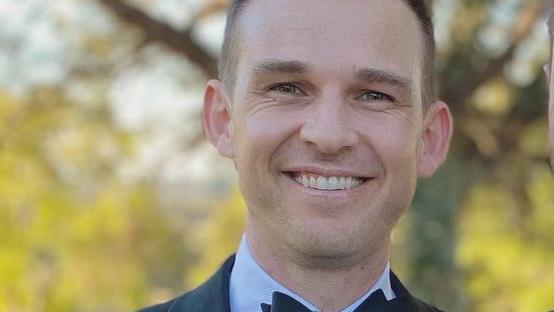
For Mr Nye, the media company he worked for wasn’t the problem, but it was the nature of the job and being “exposed” to the “worst” things happening in the world every day that took a toll on his mental health.
“The lockdown and coronavirus had a lot to do with it too; it compounded everything. I was living by myself and I thought, there has to be more to this, I don’t want to be stuck in front of a computer all day and working in social media you never really turn off,” he told news.com.au.
“I suffered from anxiety and with work and what was happening in the world it was making me more anxious, so I was baking heaps.
“I missed being in the office as I could give [my baked goods] away. But I was baking all this stuff and giving it to friends and family, and I thought if I’m doing this to calm myself down and getting up and waking up anxious, and I’m worried all the time, I have to flip this narrative.”
A report from PwC found that 85 per cent of workers experienced mental health challenges during the pandemic.
Mr Nye, a lifelong Sydneysider, had taken a few days off work as his mental health was “bad”, and when he returned he resigned from the job he had been in for 18 months finishing up in September last year.
“It was elation; I felt this weight off my shoulders. But I didn’t really have a plan,” he said.
“I knew I was going to move to Tasmania because my brother lives down here. I knew what I wanted to do but I didn’t know how the hell I was going to get there, but I think I was excited. But a small part of me was probably nervous about what was lying ahead.”

‘Not here to f**k around’
Mr Nye was unemployed for three months and during that time he was putting feelers out for apprenticeships, although he thought his chances might be limited due to being older.
He came across Pigeon Whole Bakers, based in Hobart, and had a very frank conversation with the general manager.
“I said, ‘Look I’m 37, I’m not here to f**k around. I know what I want to do in life and I know this is it.’ And I kind of used my age a bit,” he said.
“I’m not an ageist but I wanted them to know I’m not some kid that is here to make money and wondering if this is want I want to do, it isn’t just a job, this is my passion. I want to learn and I’m keen to get in there to get my hands dirty and I think she was impressed by my attitude.”
Mr Nye landed the apprenticeship but then faced the battle to get into Tasmania as borders were slammed shut to NSW at the time.
Despite changing his address on the electoral roll and numerous other strategies, he wasn’t able to get in until borders opened on December 15.
He said he is lucky that so far he has been able to stay with his brother rent-free to take some of the heat off his huge pay drop.
“I’m not going to lie – it’s daunting to see your pay come down, but in the end I’m truly not driven by the money side of things,” he said.
“I love coming to work. I just have to budget better and be smart with money, and I have savings from my last job but I’m trying not to dip into it.”

The new career
Mr Nye said the new job and team is “awesome” and he is so excited to be learning again.
He also loves that his job now involves his “hands in dough” for eight hours rather than staring at a computer screen.
“The biggest thing is being on my feet for eight hours. I have calculated on average I’m probably doing 13,000 steps a day and that’s literally back and forth and you’re always moving,” he said.
“For me, that’s the biggest change. I’ve gone from sitting at a computer for eight hours and not getting up, maybe for lunch or quick walk, and now being on my feet for eights hours and I’m not complaining. I love it – it’s great.”
The new Hobart resident said he will always be anxious but a huge difference is he no longer wakes up feeling that way.
“I probably get anxious more about driving home at night trying to avoid hitting any animals on the road and that thing of getting up in the morning and having these feelings of anxiety about the day ahead has kinda gone,” he said.
“Now I’m thinking about what am I going to learn today with my boss.”
He also loves living in “paradise” and is out exploring during his time off with hiking a new passion.

Inspiring others
Mr Nye shared his career change on LinkedIn and the post blew up with over 5000 likes and more than 200 comments. He said the response was “overwhelming” as people label him an inspiration.
For him, undertaking the mammoth change meant he didn’t have to wake up in 10 years and have regrets, he said, urging others who may be scared to make the leap as “life’s too short” not to follow your passion.
“I feel like what happened in the last two years is we were all locked away and we weren’t travelling and weren’t doing things we normally would,” he said.
“I think it was a time where people did really reassess their lives and it shows how quickly time moves. I think people are starting to really look at what they’re doing in their life and if they are truly happy and to reassess. That’s what I did.”
Long-term, Mr Nye has a goal to open his own cafe or bakery business too.

Ready to sacrifice pay
But even employers with happy staff or those who have had new employees who started recently will not be immune to The Great Resignation.
A PwC report from late 2021 found six in 10 people who have left an organisation in the past year are looking to quit their current employer in the next 12 months.
Dr Ben Hamer, future of work lead at PwC Australia, predicts a huge “domino effect” as people hand in their resignations creating “vacancy after vacancy”, adding workers have never been in a stronger negotiating position than right now.
Lockdowns and the pandemic fed into a lack of certainty and people are looking to get that back, he said.
“From a psychological perspective, workers are looking to regain control and with that create some significant changes … given the relative monotony in life over the pandemic,” he told news.com.au.
“They are restless and … with that comes a really deep period of introspection."
Flexibility in the workplace, particularly working from home, is right up there in terms of choice and control, Dr Hamer said.
“What we have seen and experienced over the last 12 to 18 months is employees have been trusted to work from home and not have someone looking over their shoulder,” he said.
“So it’s quite jarring and people are revolting about having that flexibility taken away. If organisations have mandated us to return to work three days a week, there is going to be massive spikes in resignations.
“Employees are willing to sacrifice up to 20 per cent of their pay and take a pay cut to retain flexibility over where they work and when they work.
“Its important for organisations to realise when it comes to The Great Resignation that they can throw money at people to try and attract and retain them but flexibility will be a differentiator when it comes to talent.”
PwC’s research also showed that 49 per cent of top executives had no plans to revisit their employees’ rewards and other factors that differentiates their brand, which was a huge red flag, according to Dr Hamer.

‘Gamechanger’ as happy employees leave too
But another thing that came from the PwC study is the majority of people looking to quit in the next 12 months feel engaged and trusted when it comes to their workplace.
“It’s a big gamechanger because even though people are happy, they still want to leave,” he said.
“People are going to be a lot more mobile and change jobs every two to three years and have five separate careers over a lifetime.
“Employees need to shift their mindset on how long they can keep people and instead assume it be two to three years and they need to work out how get the most out of people and retain them in the organisation by doing something different.”
Dr Hamer said part of The Great Resignation trend in America isn’t people moving from one employer to another, but it’s people changing careers. Indeed, over the past 12 months, the US has had the greatest number of new businesses created.
In Australia, Hamish Ta-mé launched his own business, although he took the leap just as the pandemic hit Australian shores.
He was heading up a marketing and communications team at Liverpool City Council, which included running 220 events a year. But it was his commute that was the killer as he lived in the Southern Highlands.
“It was upwards of 40 hours plus in the role, but then of course you take a laptop on the train and do another hour each way, so it ends up being 50 to 60 hours a week,” he said.
“I would catch the train to work at 8am and catch the 7pm train home and that was 11 hours every day and two hours on transport or longer and its not ideal really in some ways.
“It leads you to a lot of reflection when you have time to look out of a window and you think is this literally the way life is going to be?”

The 51-year-old said aside from the “killer” commute, money was a factor as he had hit the top of his pay bracket and had nowhere to go from there. But the big questions bugging him was about fulfilment, how his time should be spent and what legacy he could leave.
The dad was also tired of being "absent” from his kids and partner with his incredibly long work hours.
‘Excitement and terror’
Like Mr Nye, Mr Ta-mé quit his job without anything else to go to.
“With the pandemic it was a great opportunity to go, ‘That’s it, I’m out of here,’ and dream about what’s next,” he said.
“It’s terrifying to jump ship without knowing what exactly you’re going to do, but when you’ve got that level of excitement and terror you really do feel quite alive. It’s wonderful.”
He spent a couple of months unemployed and recharging by surfing, making jam and spending time with his family.
The Bowral man had always done beekeeping since he was a teenager, but it wasn’t until he brought an extra bee suit to show his photographer neighbour the hives and his older nieces wanted to put them on TikTok that he came up with his business idea.
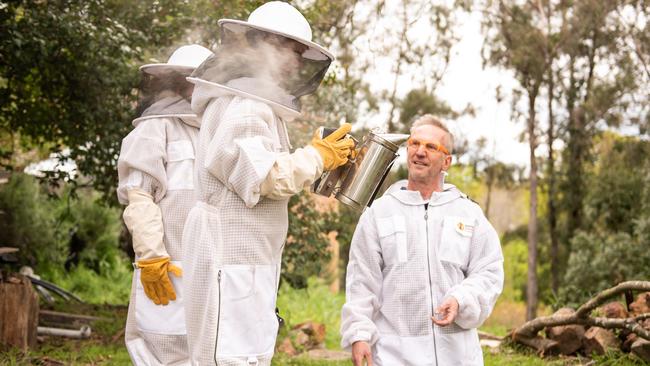
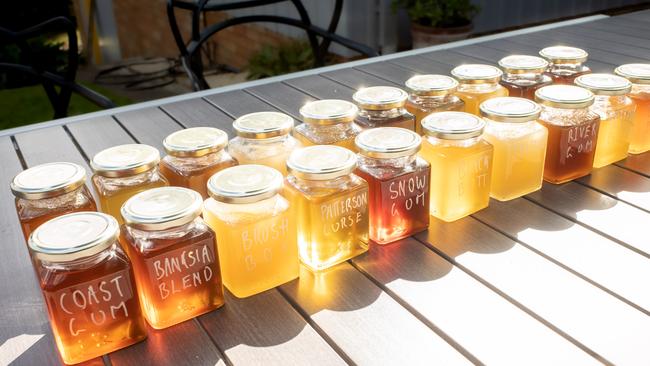
He decided to launch Bowral Beekeeping and use AirBnb’s platform to offer it as a unique experience tourists could do in the area for $120.
It quickly became the top-ranked experience on the platform and he had to scramble to get more hives and suits.
“I love it. I’m a people person and I love chatting to people and I love sharing my hobby,” he said.
“It’s a hell of a lot of fun. It’s two hours and you check out of the Airbnb accommodation, and come straight to me for morning tea.
“I make fresh scones and homemade jams and people learn about the life cycle of bees and then get among the bees and hold the frames of bees, and it’s just remarkably successful.”
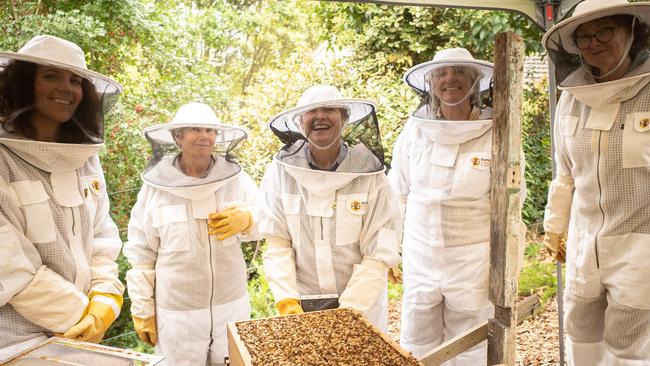
Making more money
Even when the Delta outbreak hit NSW last year sending the state into lockdown and he had 16 cancellations in the space of two hours, Ta-mé said he was able to pivot.
He launched a service to help people set up their beehives, a hobby he has found has become increasingly popular in Australia.
“When you are working crazy hours [at a workplace] and have to move on to the next event, there is lot of resentment when you just want to be at home drinking a beer,” he said.
“But when you own your business you just embrace it. Right now I’m working really long hours but it’s because its my own business and I take all my own profit.
“In terms of turnover, I have far more turnover than I was earning in a reasonably well-paid corporate role. It’s wonderful and it’s weird that it’s also paying very well.”
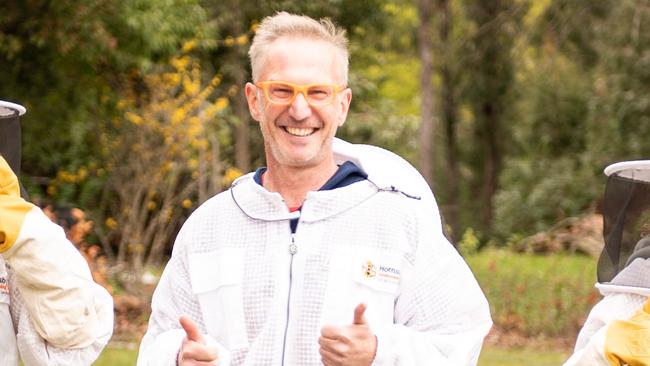
‘Best decision I’ve ever made’
Julyan Cassidy is one Aussie who embraced The Great Resignation before it became trendy.
He left a finance role that paid $140,000 five years ago to start again as an apprentice landscaper via a TAFE course earning $35,000 year.
The 39-year-old said he was diagnosed with depression and he saw a number of mental health professionals, including a counsellor.
“After a long, arduous process, it boiled down to career as a fundamental thing where I was not getting any satisfaction. I had no drive, I had no foresight and didn’t see a future in it,” he said.
“I was living for the moment, spending all my money I earned on weekends and taking a lot of time off because of anxiety and depression and something needed to change.”
He completed a course in horticulture, while still working and realised he had loved gardening since he was a kid.
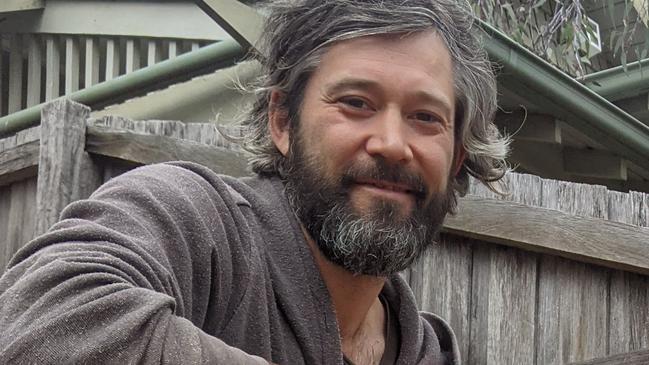
So he quit his job and took a 75 per cent pay cut, but said he was lucky that at the time he didn’t have a partner, kids or mortgage.
“I did a very aggressive budget on what life cost me and it cost $20 less than my weekly pay with bills and rent, so I had $20 a week disposable income, which was one pint a week,” he said.
Mr Cassidy said he couldn’t do a “hell of a lot” but his friends also looked out for him during that time and would buy him a ticket to a gig or meal so he could come and socialise.
The career change had a dramatic impact in more ways than one.
It included losing 10kg in the first six months and niggling injuries, but he loved being outdoors and working on people’s gardens.
“Honestly it’s literally the best decision I have ever made in my life and my mental health was so bad I didn’t even know I could be this happy,” he said.
“I have always loved plants and now my job was plants, so you can actually do a job you love.
“It didn’t feel like a job at all, I had to get up at 5am to get to work on time but I wasn’t dragging myself out of bed like was I before, I wasn’t calling in sick as I couldn’t face the day, and it opened my eyes to what I wanted to do pretty much straight away.”


The Melbourne man is now also studying to become a certified landscape designer.
He has started his own business called Sir Plantsalot, which has boomed during Covid, and he believes he can make a “lucrative” future out of it.
“It’s absolutely fantastic. There is no better feeling finishing a job and have a client be super stoked or seeing a quote and consulting about what they want for their garden and putting it on paper and someone giving you money to build that garden,” he said.
“Now I’m at the point where the stress is because I have so much to do that I need help so I can grow the business further and find the right help to deliver to my standards and vision.”
Despite initial worries about a drop in pay, he said once he took the leap, the “fear wasn’t there” anymore.
Originally published as The Great Resignation: Why Aussies are leaving their six-figure jobs





